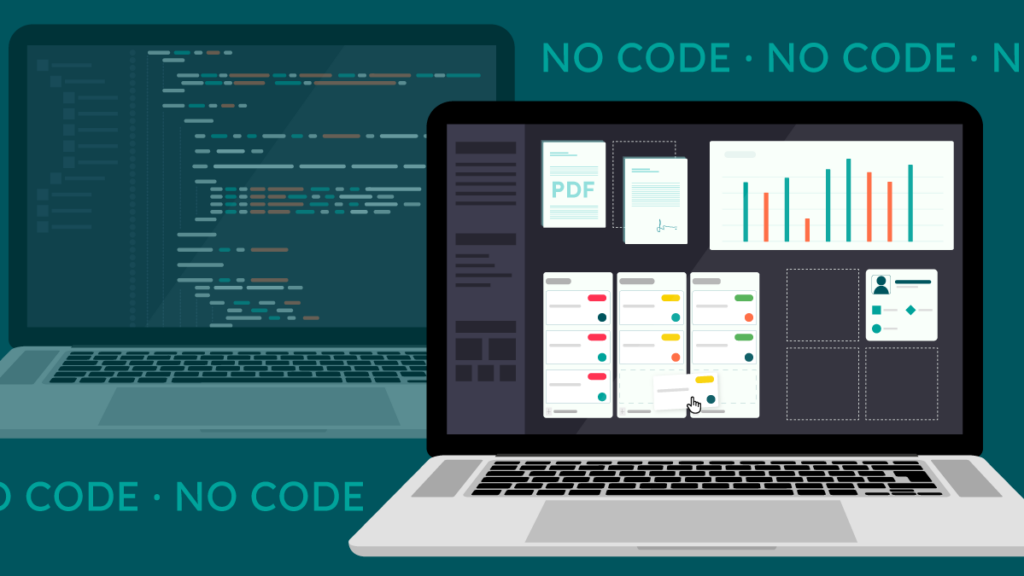
In the ever-expanding digital landscape, blogging remains a powerful tool for individuals and businesses alike to share insights, connect with audiences, and establish their online presence. With the advent of no-code website builders, the process of creating and managing a blog has become more accessible than ever before. However, like any tool or platform, there are both advantages and drawbacks to using no-code websites as a blogger. In this article, we’ll explore the pros and cons of leveraging no-code solutions for your blogging endeavors, helping you make an informed decision about the best approach for your needs.
Pros of Using No-Code Websites as a Blogger:
- Ease of Use: No-code website builders offer intuitive, drag-and-drop interfaces that make it easy for even non-technical users to create and customize their blogs. With no coding required, bloggers can focus on crafting compelling content without worrying about technical complexities.
- Speed and Efficiency: No-code platforms streamline the website development process, allowing bloggers to launch their sites quickly and efficiently. Pre-built templates, layouts, and design elements expedite the creation process, enabling bloggers to publish content and engage with their audience sooner.
- Cost-Effectiveness: No-code website builders typically offer affordable subscription plans, making them accessible to bloggers on a budget. With no upfront development costs or ongoing maintenance fees, bloggers can enjoy a low barrier to entry and predictable expenses.
- Flexibility and Customization: Despite their user-friendly nature, no-code platforms provide a high degree of flexibility and customization options. Bloggers can personalize their sites with custom branding, fonts, colors, and layouts, ensuring that their blogs reflect their unique style and identity.
- Built-in Features and Integrations: No-code website builders come equipped with a variety of built-in features and integrations, including blogging tools, SEO optimization, analytics, and e-commerce functionality. These features streamline the blogging experience and empower bloggers to enhance their sites with additional capabilities as needed.
Cons of Using No-Code Websites as a Blogger:
- Limited Control and Customization: While no-code platforms offer a range of customization options, they may not provide the same level of control and flexibility as custom-coded websites. Bloggers may encounter limitations when trying to implement specific design elements or functionality.
- Dependency on Platform Providers: Bloggers who rely on no-code website builders are inherently dependent on the platform providers for support, updates, and maintenance. Changes to the platform’s policies or pricing structure could impact the blogger’s ability to manage their site effectively.
- Template-Based Design: No-code platforms often rely on pre-built templates for website design, which can result in a lack of originality and uniqueness. Bloggers may find it challenging to differentiate their sites from others using the same templates, potentially diminishing their brand identity.
- Scaling Limitations: While suitable for small to medium-sized blogs, no-code websites may face scalability challenges as traffic and content volume increase. Bloggers may encounter performance issues or limitations in terms of functionality as their sites grow in size and complexity.
- Learning Curve for Advanced Features: While no-code platforms are designed to be user-friendly, mastering advanced features and capabilities may require time and effort. Bloggers who wish to leverage complex functionalities or integrations may need to invest in additional training or support.
Conclusion:
No-code website builders offer a convenient and accessible solution for bloggers looking to create and manage their online presence without coding skills or technical expertise. With their ease of use, speed, and affordability, no-code platforms empower bloggers to bring their ideas to life and connect with their audience effectively. However, bloggers should be mindful of the limitations and trade-offs associated with no-code solutions, including limited control, template-based design, and dependency on platform providers. By carefully weighing the pros and cons, bloggers can make informed decisions about the best approach for their blogging endeavors, whether it involves leveraging no-code platforms or exploring custom-coded solutions.